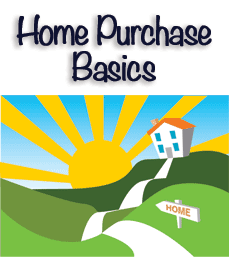 When you make a down payment on a home it has a significant effect on most aspects of home purchase. Your real estate deposit is more important than you likely believe. Here are some factors that relate to the amount of mortgage down payment you make and the closing costs you may have to pay.
When you make a down payment on a home it has a significant effect on most aspects of home purchase. Your real estate deposit is more important than you likely believe. Here are some factors that relate to the amount of mortgage down payment you make and the closing costs you may have to pay.
Closing Costs
The closing costs you face when you sign the contract can be high. They range from just over $3,000 on a $200,000 home to over $5000 – New York tends be at the higher end of the scale as you would expect. The spare cash you have available at this time will have to be split between your closing costs and your real estate deposit or down payment.
There is little you can do to reduce closing costs. The larger components of your closing cost when buying a home tend to be:
• Title search & Title insurance
• Broker, originator or Lender fees
• Surveys
• Mortgage processing
• Attorney fees
• Application fees
• Appraisal
• Underwriting
• Inspections
• Tax services
• Document preparation
• Points if purchased (1 point =1% of purchase price & reduces interest rate by 0.25%)
Apart from points, which is based on anything from 1% – 3% of the purchase price of the property, these closing costs are presented in an approximate order of decreasing cost. There are other minor costs, such as postage and courier, flood verification, credit report and employment verification. In most states these minor components of your closing costs vary from $80 each downwards.
Paying Closing Costs and Down Payment on a Home
These must be paid cash at closing before the title deeds can be passed over from the seller to you, as the buyer. Even if you have agreed with the seller that they pay the closing costs, this money will likely not be available to you until after closure. You have to pass a cashier’s check over for all costs, including the down payment, before the deal is completed.
The source of the down payment on a home is important. It can be borrowed but you must be qualified to borrow that money. Your family must gift the money to you, backed up by an official gift form stating that repayment is not required. A credit card is not permitted because it has not been qualified.
Perhaps you will be in a position where you are asking the seller to pay all or part of your closing costs. To do this, you will agree to make a higher offer to include the closing costs. The seller then pays these costs in cash. The mortgage will then be arranged to integrate these costs with your mortgage, and paid monthly as part of your mortgage repayment.
Firstly, you must make sure that the loan you have arranged allows you to do this. Secondly, the amount of closing costs permitted to be amortized in this way depends on the size of your real estate deposit.
The Larger the Mortgage Down Payment the Better
You should make as large a down payment as you can in order to allow more closing costs to be paid by the seller. Lenders will not allow the seller to pay a large proportion of the closing costs if you only pay a small down payment. The reason is generally to ensure that the capital you have available is used for house purchase and that closing costs are amortized only if you then make a large down payment on a home.
Summary
The down payment does more than reduce the amount of your mortgage, and hence your monthly repayments. It may also enable you to arrange for the seller to pay more off your closing costs in return for a higher price. This enables you to amortize more of the closing costs. It generally pays to pay as large a mortgage down payment as you can.
The closing costs and down payment on a home must be paid by means of a bank or cashier’s check. A wire or direct ban transfer might be allowed. The money must come from a qualified source. Any money from your family or others must be gifts, and covered by a gift form stating that it need not be repaid.



About The Author: Kenneth Le
More posts by Kenneth Le